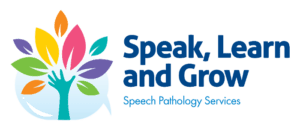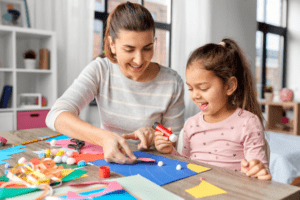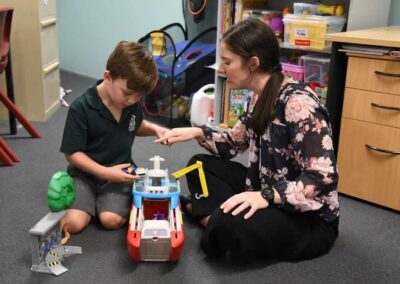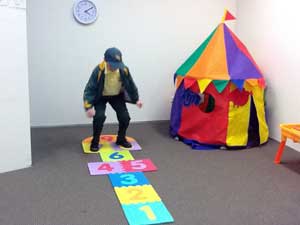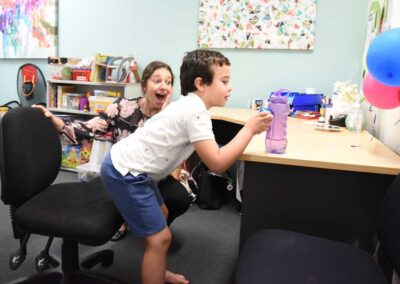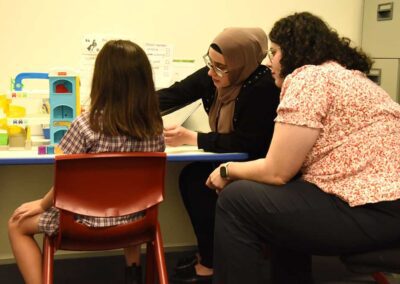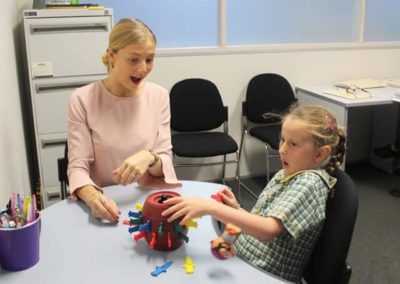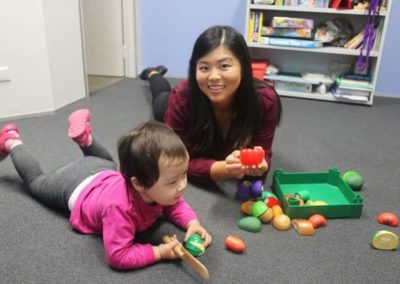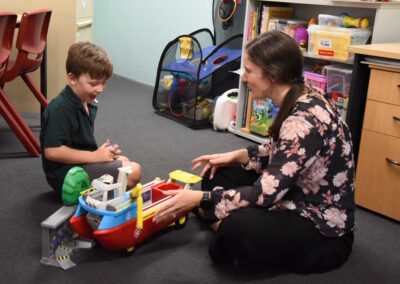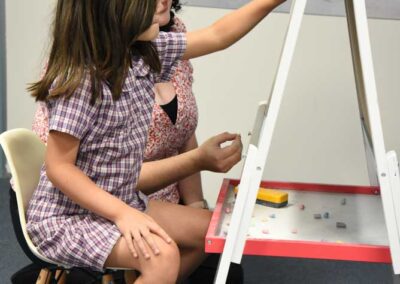Language is a fundamental aspect of human interaction, and for many children, it develops naturally and effortlessly. For some, the journey of language acquisition is more challenging. One condition that affects many children is Developmental Language Disorder (DLD). In this blog post, we’ll explore what DLD is, the language difficulties associated with it, and effective ways to support children who experience these challenges.
What is Developmental Language Disorder (DLD)?
Developmental Language Disorder (DLD) is a communication disorder that interferes with learning, understanding, and using language. DLD can affect spoken language, written communication, and even non-verbal communication. DLD is a common, but hidden, disorder. About 7% of people have DLD (this is about 1 in 14 people). There is no clear cause of DLD, and a person with DLD does not have another known biomedical condition, such as brain injury or autism. DLD is a lifelong disorder, and it persists into adolescence and adulthood.
Key Characteristics of DLD:
- Delayed Language Milestones: Children with DLD may be late to start talking or may have a limited vocabulary compared to their peers.
- Grammatical Difficulties: They may struggle with grammar rules, such as verb tenses, plurals, or sentence structure.
- Challenges with Understanding: Comprehension issues can make it difficult for children to follow directions or understand stories.
- Social Communication Struggles: DLD can impact a child’s ability to engage in conversations, leading to challenges in social interactions.
Language Difficulties Associated with DLD
Children with DLD often face a range of language difficulties that can affect their academic performance and social interactions:
- Expressive Language Skills: They may find it hard to express thoughts, ideas, and emotions clearly, leading to frustration.
- Receptive Language Skills: Difficulties in understanding spoken language can hinder their ability to follow instructions or engage in discussions.
- Narrative Skills: Children with DLD often struggle to retell stories or events, impacting their literacy development and engagement in classroom activities.
- Phonological Awareness: Many children with DLD have trouble recognizing and manipulating sounds in words, which can lead to challenges in reading and spelling.

Supporting Children with DLD
Supporting children with DLD requires patience, understanding, and effective strategies tailored to their unique needs. Here are some practical approaches to help children thrive:
- Work with Professionals: Connect and collaborate with a speech pathologist. Speech pathologists assess, diagnose and support people with DLD. They can help find out which areas of language (talking and understanding) are easier or more difficult for a person with DLD. They can then recommend strategies and support that may help the person with DLD.
- Create a Language-Rich Environment: Surround children with diverse language experiences. Read books together, sing songs, and engage in conversations that introduce new vocabulary and concepts.
- Use Clear and Simple Language: When communicating with a child with DLD, use short sentences and clear language. Avoid complex phrases and jargon that may confuse them.

- Encourage Turn-Taking in Conversations: Foster social skills by encouraging turn-taking during conversations. This practice helps children learn to engage in dialogue and understand the flow of communication.
- Visual Supports: Incorporate visual aids, such as pictures, gestures, or written words, to enhance understanding. Visual supports can be particularly effective in helping children follow instructions or grasp new concepts.
- Break Tasks into Smaller Steps: When giving directions or instructions, break them down into manageable steps. This makes it easier for children to process information and complete tasks successfully.
- Promote Social Interactions: Encourage playdates or group activities that allow children to practice their language skills in social settings. Engaging with peers can boost confidence and communication abilities.
- Celebrate Progress: Acknowledge and celebrate small achievements in language development. Positive reinforcement can motivate children to continue improving their skills.
Developmental Language Disorder can present significant challenges, but with the right support and understanding, children with DLD can thrive. By fostering a nurturing environment, utilizing effective communication strategies, and collaborating with a speech pathologist, we can help these children unlock their potential and develop the language skills they need for success in life.
The DLD Project is an Australian organisation that strives to provide education, resources and support for Developmental Language Disorder (DLD). Check out their website for more information: https://thedldproject.com/
Remember, every small step forward is a victory worth celebrating! You can contact us at Speak, Learn and Grow Speech Pathology Services on (02) 8522 7024 or fill in this form.